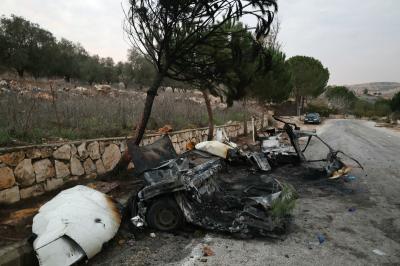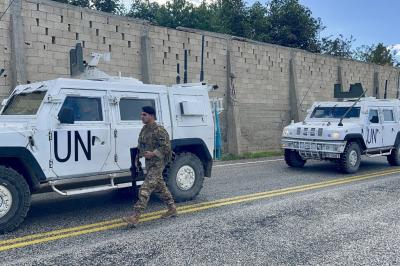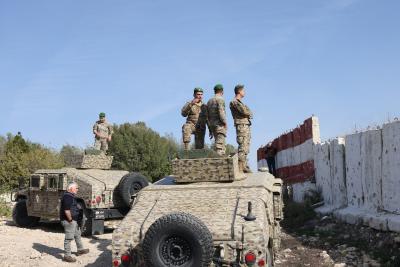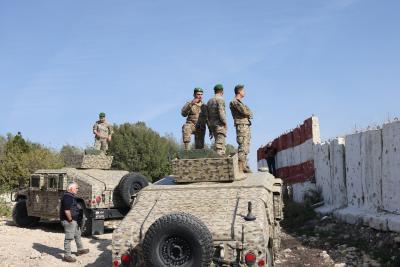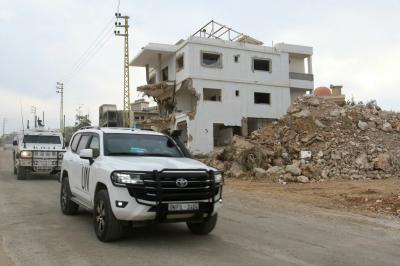Earlier this year, Zelenski embarked on a massive revocation drive, paired with the forced resignations of numerous top officials. This action followed the unearthing of corruption scandals related to military contracts.
At the onset of the current year, President Zelenski initiated a significant wave of dismissals while pressuring many officials to resign. This move followed shocking revelations of corruption cases involving tens of millions of dollars in contracts meant for supplying logistical equipment to the Ukrainian army stationed at the frontlines.
Over the weekend, Ukrainian President, Volodymyr Zelenski, made a bold decision by dismissing his Defense Minister, Alexei Reznikov. In his stead, he appointed 41-year-old Rustam Omurov, a passionate advocate for reclaiming every inch of Ukrainian territory under Russian occupation. Omurov has vowed to do whatever it takes, even the impossible, to ensure Ukraine's victory without compromises or mediation. This change has rattled Ukraine's political landscape and seems driven by more than just concerns about the defense minister. It underlines the pivotal juncture Ukraine finds itself in its war against Russia.
The U.S., through the Pentagon, has announced a substantial military aid package of $175 million to Kiev, which includes depleted uranium munitions of 120mm caliber for the American Abrams tanks.
Several reasons account for the firing:
Earlier this year, Zelenski embarked on a massive revocation drive, paired with the forced resignations of numerous top officials. This action followed the unearthing of corruption scandals related to military contracts.
The upcoming 2024 presidential elections have pushed Zelenski to seek favorable allies for a potential second term.
Recent unsuccessful counter-offensives and the onset of winter necessitate special tactics and boosted morale, leading to the appointment of a relatively young 41-year-old defense minister.
Rustam Omurov's positive contributions to negotiations regarding Black Sea grain exports.
Persistent corruption allegations within the Defense Ministry.
Omurov's prior involvement in negotiations with Russia could be advantageous for Zelenski.
Before Reznikov's dismissal, high-ranking U.S. officers met their Ukrainian counterparts at the Polish border at the Pentagon's request, emphasizing a revision in Ukraine's counter-offensive strategy. After the defense minister's replacement, the U.S. clearly indicated that the old strategy was doomed, urging Ukraine to learn from past mistakes. Zelenski's alignment with American recommendations is evident.
In the conflict's initial stages, Ukraine exhibited tactical brilliance. Instead of a conventional confrontation with Russia, where Russia would have a clear advantage, Ukraine adopted a guerrilla warfare strategy. This approach prioritized decentralized forces that distracted the Russian army from strategic goals. Despite being outnumbered, the Ukrainian army dealt significant blows to the Russian forces, preventing them from neutralizing Ukrainian forces swiftly.
Ukraine's intimate knowledge of the battleground enabled them to strategically engage and disengage Russian forces. While it would have been prudent for Russia to reevaluate after facing losses, they instead spent over a year focusing on capturing cities, leaving the Ukrainian army and civilians' morale largely intact. Consequently, Russia deployed the "Wagner" organization. However, their methods made city conquests lengthy, sustaining Ukraine's morale.
With the recent withdrawal of the "Wagner" organization, Russia's defense ministry has revisited its strategy, pushing Ukraine towards direct confrontations. Now, Moscow must reevaluate its strategy, especially with NATO-aligned Ukrainian forces hinting at a slightly increased chance of Russian success.
However, NATO believes that Ukraine, now on the defensive against Russian forces, is headed for defeat unless it revises its tactics. With modern artillery, drones, superior intelligence, and combat-ready troops, Ukraine is poised to challenge Russia's positions and disrupt their supply lines.
Ukraine is embracing a new military strategy bolstered by Western weaponry. The hope is this will shift the battle dynamics after a period of exhausting the Russian army through urban warfare and guerrilla tactics. Meanwhile, Russia, initially prepped for conventional warfare, now grapples with guerrilla tactics and must adjust accordingly. The world watches closely, uncertain if Europe faces a frosty winter marked by blazing conflict in Ukraine and Russia, or if initiatives will cool tensions and restore peace. The pressing question remains: a destructive war or peaceful resolution? The stakes couldn't be higher.
Please post your comments on:
[email protected]
 Politics
Politics
